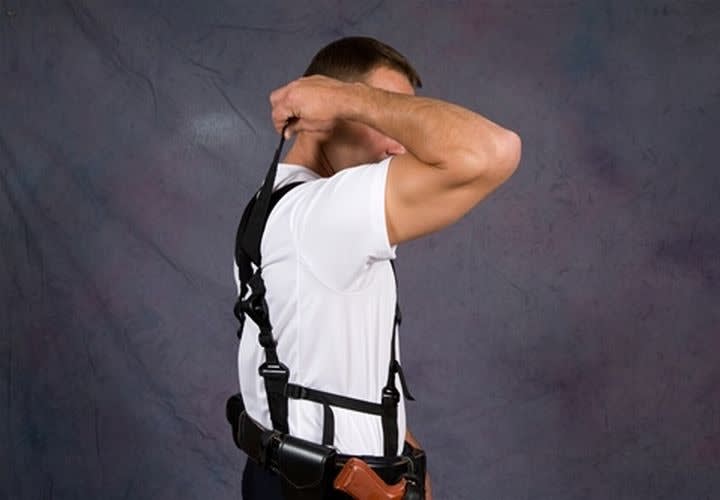After a few decades on the job, most cops have injuries similar to those experianced by professional athletes. Because we don't have their pensions and disability clauses in our contracts, you'll want to protect your body, as well as your future.
Several years ago, a back injury and two subsequent surgeries made me take a look at my life and career. I don't care who your doctor is or what medical voodoo they do; if you ever injure your back, it's life changing.
More and more officers suffer from back injuries. We carry far too much gear around our waists. Duty belts press against our lower back while we're sitting in the cruiser. The newer patrol cars aren't as large as the road patrol monsters of years gone by. So much electronic stuff limits car cockpit space.
Here's the most sage advice I can give you. I made a critical mistake years ago, and wish I could have a "do over" in life with my back. I was a young sergeant chasing the next promotion. I got myself injured on the job; the doc gave me good medical advice and I didn't heed it. I felt if I went back for additional treatment or even surgery, my career would have been sidetracked. So I kept rubbing poultices on it and going for therapy at a local back cracker at my own expense—if the insurance doesn't pay for it that should tell you something. I gobbled every over-the-counter pain reliever and suffered for years.
Yes, I got my promotion, and ended up with the surgery anyway—twice for that matter! What's my advice? If you have a back injury, report it and do what the doctors tell you. Your career is not worth lifelong pain, suffering and possible disability.
The police equipment industry has responded to this dilemma. There are new variations of lightweight materials for the duty belt. Most departments are switching to these for more comfort and less low-back fatigue. If you have an opportunity, give these a closer look. They look professional. They can be decontaminated. Most importantly, they cut down on the weight-bearing load and belt pinch. The most comfortable level I've found is individual fit. You can adjust the hook and loop fasteners to a comfortable fit for you. You'll no longer have one belt hole that's too loose, and another that causes you to hold your breath for the night.
Years ago there were belts that were extremely wide that were portrayed as the back-relief answer. Some looked like championship belts from television wrastlin' or Elvis' motorcycle kidney belts (minus the sequins). They went away, along with the rotary phones. We now have new equipment selections.
There are some tactical suspenders that match the equipment belts and take the load off the back and hips. Several officers are using these with great results. Make sure these are made for police with break-away straps for your safety. The fashion police will get you, because you should never wear suspenders with a belt. Well, this isn't formal civilian dress! This is much akin to the load-bearing suspenders from the Vietnam era. They worked then, and get the job done now.
Lastly, take care of your back. In the gym, perform all exercises correctly and safely. If you're in this profession, you'll need to keep yourself in good shape. Don't ever give up an opportunity on the shift to stretch. Jumping out of a car from stationary to ballistic action will pull a muscle. During a shift, you may have to get out to the car to check a business. Use this as a stretching opportunity. Consult your gym trainer or call the training unit and get some stretching advice. Take time to stretch and always stay safe.












